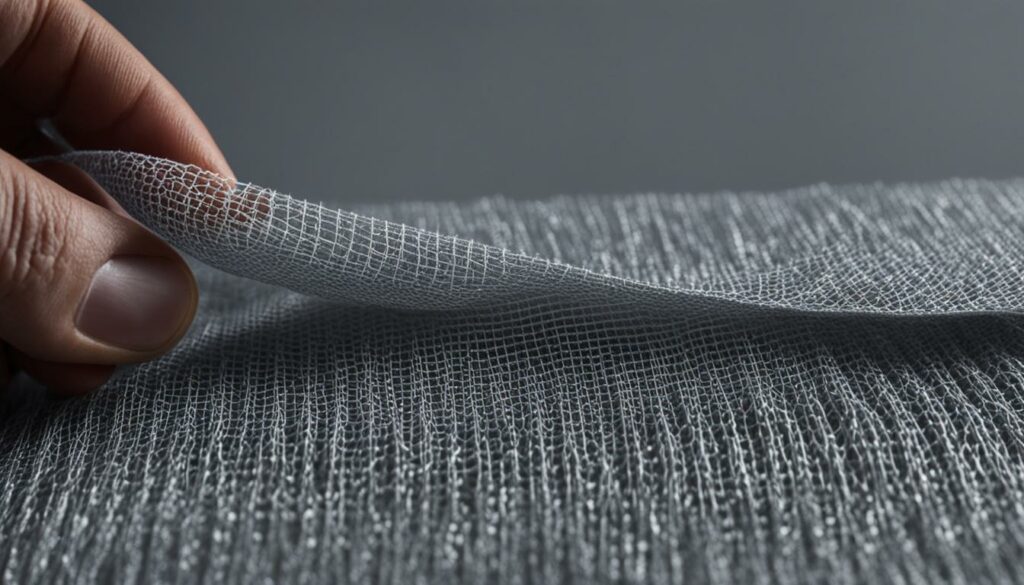Welcome to our comprehensive guide on the benefits of collagen supplements during menopause. Menopause is a natural stage of life for women that comes with a range of challenging symptoms. Fortunately, research has shown that taking collagen supplements during this time can greatly manage and reduce these symptoms. This article will provide an overview of how collagen supplements can improve overall health during menopause, from promoting skin elasticity and joint health to preserving muscle mass and reducing hot flashes and mood swings. Let’s explore the benefits of collagen supplements during menopause!
Understanding Menopause Relief and Hormonal Balance
Menopause is a natural stage in a woman’s life that occurs when she stops having her menstrual periods. It usually occurs between the ages of 45 and 55 and is marked by a decrease in estrogen and progesterone, the hormones responsible for regular menstruation. Menopause can cause several symptoms, including hot flashes, mood swings, and difficulty sleeping. Fortunately, there are several ways to manage these symptoms and achieve menopause relief.
A key component of menopause relief is achieving hormonal balance, which can be disrupted during this stage. Hormonal imbalances can lead to a range of symptoms, including irregular menstrual periods, weight gain, and fatigue. Collagen supplements can help in achieving hormonal balance and alleviating menopause symptoms. Collagen is a structural protein that plays an essential role in maintaining healthy skin. Still, it also supports hormonal balance, as it contains high levels of amino acids such as glycine and proline, which are necessary for the production of estrogen and progesterone.
In addition, collagen supplements have been shown to reduce inflammation, which can help alleviate menopause symptoms like joint pain and stiffness. Collagen can also support bone health and prevent age-related bone loss, which is particularly important for women since they risk developing osteoporosis after menopause. By taking collagen supplements, women can support healthy joints and strong bones during this stage of life.
Overall, incorporating collagen supplements into a daily routine can help achieve menopause relief by promoting hormonal balance, skin health, joint health, bone density, hair, and nail strength while alleviating common menopausal symptoms like hot flashes and mood swings.
Enhancing Skin Elasticity and Health
Collagen is an essential protein that contributes to maintaining skin elasticity and overall skin health. As we age, our body’s natural collagen production decreases, leading to sagging skin, wrinkles, and a loss of firmness.
Collagen supplements can help support skin rejuvenation and reduce common menopausal skin concerns. Studies have shown that taking collagen supplements can increase skin hydration, improve skin elasticity, and decrease the appearance of fine lines and wrinkles.
Additionally, collagen supplements can aid in healing acne and other skin conditions by promoting skin cell regeneration and turnover.

When shopping for collagen supplements, look for products that contain types I and III collagen, which are the most abundant in the skin. It’s also important to choose a reputable brand with high-quality ingredients.
Incorporating collagen supplements into your daily routine can maintain healthy skin elasticity and promote overall skin health during menopause and beyond.
Promoting Joint Health and Bone Density
Menopause can have a significant impact on joint health and bone density. As estrogen levels decrease, bone density decreases, and the risk of osteoporosis increases. Collagen, a vital protein found in bones and joints, plays a crucial role in maintaining their health and strength. By taking collagen supplements, menopausal women can help promote joint health and prevent bone density loss.
Studies have shown that collagen supplementation can improve joint flexibility and reduce joint pain. Collagen synthesis also plays an important role in bone formation and can help prevent bone fractures and injuries. A Journal of Medical Nutrition and Nutraceuticals study found that daily collagen supplementation for 12 months resulted in increased bone mineral density in postmenopausal women.
Foods Rich In Collagen And Their Benefits
| Food | Collagen Benefits |
|---|---|
| Bone broth | Boosts bone and joint health |
| Salmon | Improves skin health |
| Leafy Greens | Promotes healthy hair and nail growth |
| Citrus fruits | Supports collagen production |
While collagen supplements are readily available, consuming collagen-rich foods can also help improve joint health and bone density. Foods such as bone broth, salmon, leafy greens, and citrus fruits can help provide the body with the necessary nutrients to produce collagen.

Strengthening Hair and Nails
Menopause affects hormone levels and can cause changes in hair and nail health. As estrogen levels decrease, hair becomes dull and brittle, and nails become weaker and more prone to breakage.
Collagen supplements can improve the strength and condition of hair and nails, promoting overall well-being. Collagen’s amino acids, such as glycine and proline, are essential for healthy hair and nail growth. These amino acids are vital in building keratin, a protein that makes up hair and nails.
Studies have shown that taking collagen supplements can increase hair thickness, reduce hair loss, and improve nail growth and strength. In a randomized, double-blind, placebo-controlled trial, women who took collagen supplements for 180 days had significantly improved nail health compared to those who took a placebo.
Incorporating collagen supplements into your daily routine can enhance the health and appearance of your hair and nails. Select a high-quality collagen supplement formulated to support hair and nail strength for optimal results.
Preserving Muscle Mass and Strength
During menopause, many women experience muscle loss due to decreased estrogen levels. This can lead to a decrease in strength and overall fitness, making it crucial to take steps to preserve muscle mass.
Collagen supplements can aid in maintaining muscle integrity and combat age-related muscle loss. Collagen is a protein that supports muscle tissue’s growth and regeneration, helping keep muscles strong and healthy.
Studies have shown that collagen supplementation can help improve muscle mass and decrease muscle loss in aging populations. In addition, collagen may also help reduce inflammation and alleviate joint pain associated with exercise, further supporting the preservation of muscle mass and physical activity.
To preserve muscle mass and strength during menopause, it is essential to incorporate collagen supplements into your daily routine. Coupled with regular exercise and a healthy diet, collagen can support overall physical fitness and well-being.
Alleviating Hot Flashes and Mood Swings
Hot flashes and mood swings can be some of the most uncomfortable menopause symptoms. Fortunately, collagen supplements can help alleviate these issues. Hormonal imbalances cause hot flashes, and collagen can aid in hormonal balance, reducing the frequency and intensity of hot flashes. Additionally, collagen supplements have been shown to enhance mood stabilization, improving overall emotional well-being during menopause.
In a study conducted on menopausal women, those who consumed collagen supplements reported a significant reduction in the frequency and intensity of hot flashes. The study also revealed that collagen supplementation aided in mood stabilization, reducing menopausal mood swings.
“I used to have hot flashes so severe that I couldn’t sleep at night. After starting collagen supplements, I’ve noticed a significant reduction in the frequency and intensity of my hot flashes. My mood has improved as well, and I feel like my old self again!” – Sarah, 52
Collagen supplements can help women achieve hot flash relief and mood stabilization during menopause, contributing to overall well-being and comfort.
Conclusion
Collagen supplements can be valuable to any menopausal woman’s wellness routine. These supplements aid in maintaining hormonal balance, promoting healthy skin, hair, and nails, supporting joint and bone health, and preserving muscle mass and strength.
Moreover, collagen supplements can aid in reducing hot flashes and stabilizing mood swings, thereby contributing to an overall improvement in well-being.
It is important to note that collagen supplements are not a universal cure for menopausal symptoms. However, they can be an effective natural solution to alleviate the physical and emotional changes that occur during this transitional phase.
Consult with a healthcare professional to determine whether collagen supplements are right for you, and always choose high-quality, reputable brands to ensure optimal results.
With collagen supplements’ numerous benefits, incorporating them into your wellness routine can help you feel your best during menopause and beyond.

